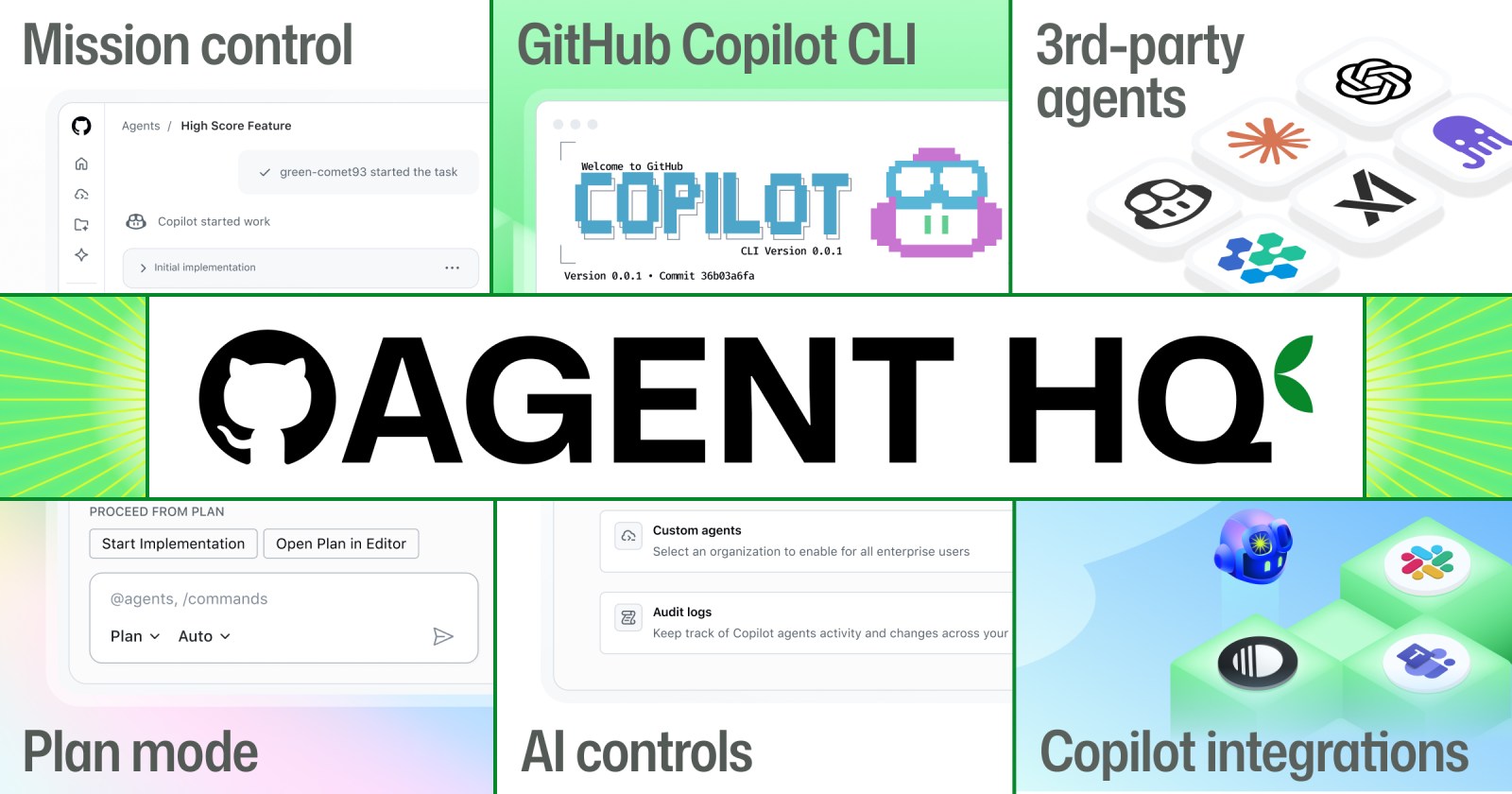GitHub is taking a bold step toward unifying the increasingly fragmented world of AI tools with the introduction of Agent HQ, a framework that embeds intelligent agents directly into the development workflow. Rather than forcing developers to juggle different platforms and integrations, GitHub’s new system brings multiple agents—ranging from those built by Anthropic and OpenAI to Google and xAI—under one familiar roof: the GitHub ecosystem.
The premise is simple but powerful. With Agent HQ, GitHub turns itself into a central operating system for AI-assisted development, a place where teams can assign, steer, and monitor agents without leaving their usual environment. As GitHub explains in its announcement, “Agents shouldn’t be bolted on. They should work the way you already work.”
At the heart of this initiative is Mission Control—a unified command interface that follows you across GitHub, VS Code, mobile, and the CLI. Mission Control allows developers to run multiple agents in parallel, track progress, and manage permissions as naturally as they would assign a pull request or trigger a CI pipeline. Every agent operates within the same governance and security framework as human collaborators, complete with access controls, audit logs, and compliance policies.
VS Code is getting a significant update too. The new Plan Mode helps developers and teams structure their work before writing a line of code. It interacts with Copilot to ask clarifying questions, generate step-by-step plans, and ensure that contextual knowledge—project details, conventions, even cultural nuances—flows seamlessly into implementation. Developers can now define behavior and rules for custom agents through AGENTS.md files, source-controlled blueprints that give teams fine-grained control over how their AI helpers behave. Think of it as configuration-as-code for AI collaboration.
Another major part of this vision is the GitHub MCP Registry, now integrated into VS Code. It supports the full MCP specification, letting developers instantly connect tools like Stripe, Figma, and Sentry to their agent workflows. The registry turns these third-party integrations into first-class participants in the development lifecycle—making AI-powered orchestration feel less like magic and more like well-engineered collaboration.
GitHub isn’t ignoring the governance and measurement side of AI, either. Copilot Metrics Dashboard, now in public preview, offers insights into AI usage and its impact across entire organizations. Alongside it, GitHub Code Quality extends beyond security checks, evaluating code maintainability and reliability. The combination of proactive reviews and health metrics means that AI-assisted code doesn’t just pass review—it sustains the codebase over time.
Enterprise users get additional control through a dedicated AI control plane, a governance layer for managing access, defining agent policies, and auditing AI activity across teams. This centralization of policy and monitoring brings AI under the same compliance umbrella that already governs GitHub Actions and repository permissions.
Ultimately, Agent HQ signals GitHub’s intent to make AI a native part of software development, not an optional add-on. It ties together agents, tools, and collaboration into one workflow that feels organic rather than experimental. As GitHub’s leadership puts it, the goal isn’t hype—it’s about “bringing order and governance to this new era without compromising choice.”
By turning GitHub into a true Agent HQ, the company is positioning itself as the nexus where human creativity and machine collaboration converge—on developers’ terms, within the systems they already trust.
